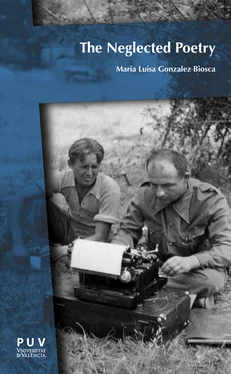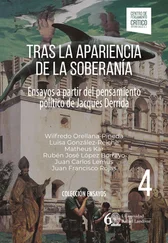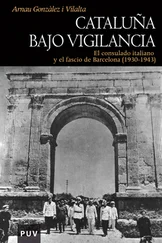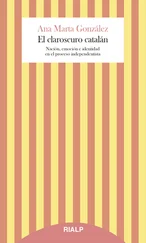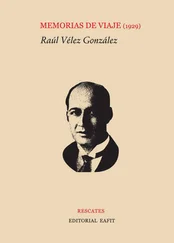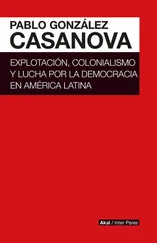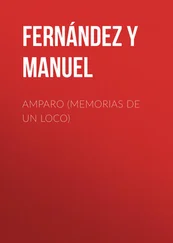At the same time, and this being a fundamental question for the anthology, the government, different cultural associations, trade unions, political parties, and military units also edited their own monthly, weekly, or daily publications.
As a consequence of the proposal of the agreement of non-intervention 2and the large scale military collaboration between the European fascist powers, and the Moroccan Legion, supporting the rebels, the International Communist, at the request of Joseph Stalin, organised the formation of the International Columns after September 1936 (Castells, 1974: 56). The French Communist Party (FCP), led by André Marty, carried out the recruiting and organization. Many of the volunteers who joined came from countries with dictatorships, such as Germany or Italy, but the majority came from democratic countries, such as France, England, Ireland, Belgium, the United States, Argentina and Chile, among others. However, not all the brigadists were Stalinists, as Casanova states, “There were a good many in the Brigades who were Stalinists, especially at the organisational level, but there were thousands who were not” (2010: 95).
The volunteers of the International Brigades came spontaneously to defend the Spanish Republic because of their ideals of solidarity; many of them sacrificed their lives for the Republic’s defamed right of self-defence because they knew that, what was at stake in Spain was the liberty of the entire world.
The birth of the brigades cannot be understood without the existence of the Non-Intervention Committee that had blocked Democratic Spain. Confronted with all the evidence of Hitler’s and Mussolini’s tangible support to Franco, the Republic declared that the neighbouring countries hid behind the hypocrisy of the words “the keeping of world peace” to disguise the reality of the facts: the breaking of all the previous agreements of collaboration of mutual help among democratic countries, with France and Great Britain as their head (Núñez, 2004: 121, the translation is ours).
The International Brigades were consolidated into five brigades; the XV was the English speaking brigade, mainly formed by English, Irish, Canadian, American and Australian brigade memebers.
The volunteers from the working class had a tradition of writing poetry, given that the leftist publications in England or Ireland promoted the publication of stories and poems about their personal experiences (Jump, 2006: 15). Different from the recruited men in the First World War, these men formed part of the first literate worker generation (Jump, 2006: 15). Newspapers, such as New Writing , Left Review or Poetry and the People , encouraged the writers and poets mainly from the working class to publish poetry. Continuing that blossoming tradition, any volunteer brigadist could feel free to express an idea or a feeling without feeling inhibited for not being a professional writer. Some of these poems were published in The Volunteer for Liberty , the XV International Brigade’s weekly paper written in English and edited in Madrid from February until March 1938, when the publisher moved to Barcelona because of the development of the war. The majority of the XV International Brigade poetry was practically unknown. Only the names and the works by John Cornford, Stephen Spender and Charles Donnelly, writers who enlisted in the International Brigades, were known.
The brigadists, who fought for the defence of the Republican cause, left a valuable testimonial legacy in which the poetry that was written in the battlefield stands out.
Nevertheless, the subsequent war development, with the Second World War following the Spanish War and after this the Cold War, 3had negative repercussions on this legacy, since one of the consequences was the global polarization into two main political blocks, one communist and the other, capitalist. Sectarianism imposed the rules of the game. Everything related to communism or leftist issues was instantly attacked, chased or ignored in the capitalist sphere. The same thing happened in the communist countries regarding the countries under the influence of capitalism.
1 El Mono Azul was a magazine published on the Loyalist side during the Spanish Civil War under the auspices of the Alliance of Antifascists Intellectuals.
2 The Committee of Non-Intervention, promoted by the French Government at the beginning of the war, ended with an agreement which was signed in London on the 3rd of September of 1937. Twenty-seven countries, including the great European powers, signed a pact in which they committed themselves not to get involved in the Spanish War.
3 The Cold War was a historic period of tension between the capitalist block, with United States as head, and the communist bloc, headed by the USSR, which lasted from 1945 to 1991. Its origin was the end of the Second World War, and it was called this because no war between these nations was started, probably because of the fear of a nuclear war. During this conflict two wars occurred where both powers directly or indirectly intervened: Korea (1950-1953) and Vietnam (1964-1975).
Introduction Justification for the Anthology
Nancy Cunard, helped by W.H. Auden and Stephen Spender, carried out a survey among the English and Irish writers to know who supported the legal government of the Republic, who did not, and who did not choose either of the two options. The survey was named Authors Take Sides On the Spanish War and its results were published in Left Review in 1937.
Thanks to initiatives like Cunard’s, poetry was written in English from Canada, England, Ireland, Australia, and evidently, also from other countries and in other languages. This poetry had two clear functions: on the one hand to defend the Spanish democracy, and, on the other, to let the citizens from those countries know that, in spite of the non-intervention agreement, an invasion, supporting the rebel’s coup d’état, was being carried out by Nazi and Fascist Italian troops. The function of this poetry was evidently used as propaganda:
The immense majority of writers, as is known, adheres to the cause of the young Spanish Republic, although voices which celebrated the coup d’état were not lacking- the most notorious case, not only for the large amount of verses, which were dedicated to it, but also for the undisputable quality of some of them, is that of the South African poet Roy Campbell. The ideological answer is heterogeneous among the committed or sympathizers writers of the Spanish Republic, as diverse as the mosaic of forces of the “Spanish labyrinth” (Álvarez & López, 1986: 5, the translation is ours).
Regarding the poems written by the brigadists during the war in Spain, the references to the territory where the war was fought were fundamental and continuous: the trenches, the bombed cities, the ambulances, the hospitals and so on. The temporal axis corresponded to that of the brigades during the civil war, from their arrival in Spain at the end of summer in 1936, until their departure in November 1938. This poetry, as Álvarez & López (2006) indicate, did not have the function of propaganda or, at least, not at first. The experience and the reality of the war did not admit its idealization, nor its violence, although the brigadists fought for and vindicated ideals:
Paradoxically, we find the most intimate notes and a language with smaller doses of political propaganda, especially in the writings of the poets who fought in Spain. On the other hand, the verses with the largest ideological accent were produced far from the battlefronts. The poetry by “poets in uniform” generally springs from their own experiences in the trenches; they know “blood and death,” and do not admit the heroic touches, nor the idealization of violence which usually decorates the propagandistic poetry (Álvarez & López, 1986: 6, the translation is ours).
Читать дальше
